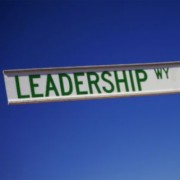How do you relate to your personal goals?
I recently had the opportunity to deal with two situations in which two professionals that I am coaching dealt with a similar reality in a completely different way. Both clients are very determined and successful people. The topic they were dealing with was achieving their personal goals.
I’ll use fictional names and call one David and the other Bruce. Both set ambitious personal financial goals and both failed to achieve them.
David reacted emotionally to his missed goal. He was upset; he felt the sky had fallen. He identified with his goals so he took not achieving them personally.
Bruce on the other hand, related to his result as a smaller tragedy. While the goals were important to him, he didn’t take it personally and therefore he was able to move on without loosing much sleep over his missed goal.
Bruce felt he had failed. But, David felt he was a failure….two very different reactions to a similar situation.
Why did one person feel that he was a failure while the other felt that he merely failed?
It’s how they relate to their personal goals.
David had his identity and self-worth wrapped up in his goal. When he didn’t achieve his goal he felt personally invalidated. For him not meeting his desired objective meant that something was defective with him. It implied that he would most likely continue to fail in the future, because clearly ‘he wasn’t up to the task.’ You can imagine how devastating that feeling is.
Bruce, on the other hand, held his results separate from his self-worth. For him his results merely reflected how effective he was in turning his vision into reality. So, if he didn’t reach his personal goal this time, it merely meant that it was still attainable, but he needed to improve his performance. What a much more positive and hopeful outlook.
People who relate to their personal goals more like David tend to be more impatient in dealing with their goals. They are likely to feel that things are “moving too slow” and “taking too long.” As a result, they tend to have more tension, stress and anxiety in their life.
Contrast that with people who are more like Bruce; they tend to be more calm and happy. They do a better job enjoying the journey, not just the destination.
How do I know all this? Because I use to be more like David, but today am more like Bruce. I have personally experienced the transformation from one mindset to another.
In fact, a long time ago someone asked me “how are you doing?” and I responded with “Everything will be OK.” The unsaid was: “…when I achieve all my key goals.” My wife, who was with me at the time jumped in and exclaimed: “Things are OK now!” She reminded me that my self-esteem does not depend on the achievement of my goals. And yours doesn’t either.
My question to you is: How do you relate to your personal goals?
Photo by: Manoj Vasanth









Leave a Reply
Want to join the discussion?Feel free to contribute!